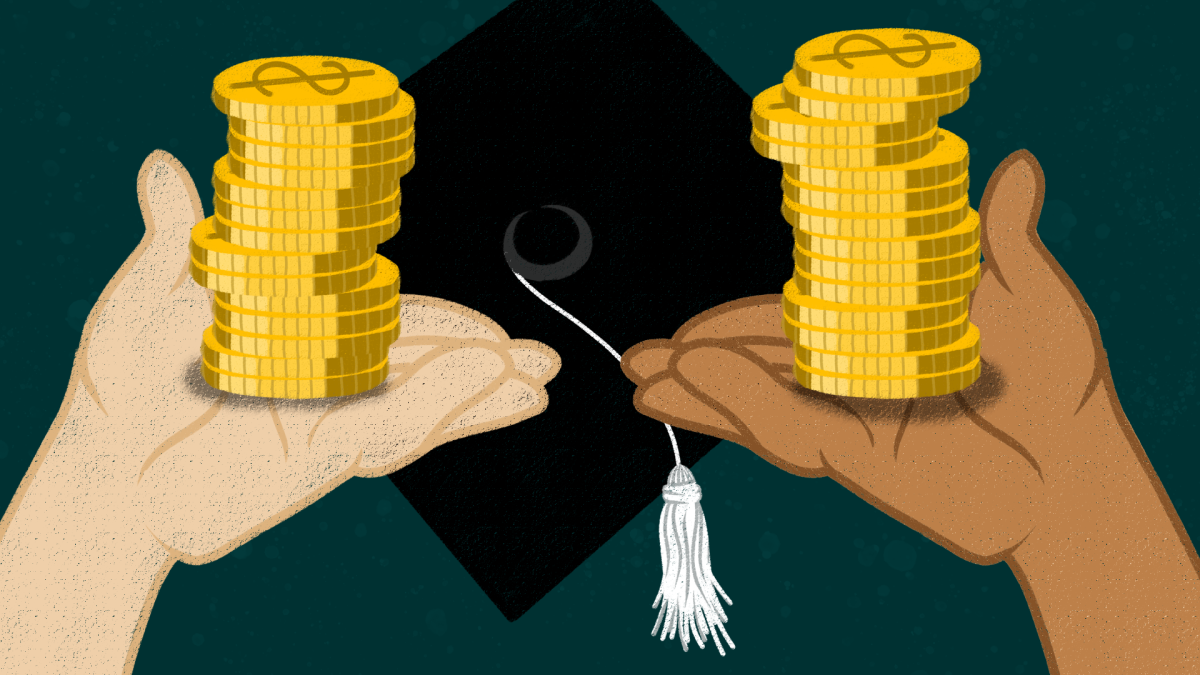Generation Next — a program committed to helping Black students succeed post-graduation — will be launched this fall through the Black Cultural Center.
Meligha Garfield, director of the BCC, said the goal of the program is to help Black students learn life-long, career-based skills such as networking and building a business.
“We really wanted to create a program that holistically establishes networking for our students, but also sets them up for postgraduate success for internships and jobs,” Garfield said.
Last year, the University of Utah partnered with the University Innovation Alliance. UIA is a national coalition of public research universities committed to increasing the number and diversity of college graduates in the United States. UIA gave a grant of $25,000 to support the launch of Generation Next, and the U will match the grant for a total contribution of $50,000.
The money will be allocated in three different ways: scholarships, business tours and professional mixers.
“Every month, or at least three times a semester, we will have a business tour in which we take students to either a Fortune 500 company or small business,” Garfield said. “We want them to see different aspects, different spaces and other career fields than what they may think is healthier for them when they graduate.”
He added the idea for the program came from a once-a-semester event the BCC hosted called the mix-up. At this event, students had the opportunity to network with businesses through a variety of non-traditional forms. These included speed networking, competitions and mock interviews.
“We wouldn’t throw them into a room and just say, ‘Hey, ask for this business card,’ and that’d be the end of your networking experience,” Garfield said. “We wanted to make it more holistic.”
The BCC had success with their semesterly mix-up, and Garfield said they wanted to capitalize on that.
“We’re like, ‘Look, how can we build upon this and really create a program crafted around networking, and not making it the stuffy traditional formats of networking?'” he said. The answer was Generation Next.
Currently, three in 10 Black students default on their student loans post-graduation. This rate is three times higher than their white counterparts. Defaulting on a student loan is a great indicator of financial struggles after college. Inability to pay student loans is based on a variety of factors such as employment opportunities tied to major, family connections, institutional selectivity and racial bias. Generation Next will be focused on getting rid of those inequalities.
“I graduated not knowing how to write a resume; I graduated not knowing how to go to mixers or network or how to use LinkedIn,” said Sara Cody, program coordinator at the BCC. “So that’s what this program is giving.”
Cody added a program like Generation Next is important because Black students have “disproportionate access to resources that Generation Next provides,” such as professional mentors and help building their resumes.
Another portion of the $50,000 will be allocated towards professional mixers. At least 20 to 50 companies will be invited, and the focus will be learning how to network and connect with the community.
“We’re still keeping that component of the mix-up, but we’re going to expand it to have as many students as they would like to come,” Garfield said. “That will be open outside of the cohort. So both the cohort of the program, and any student that would like to come can come to these mix-up events.”
“We really want to hone in on having a larger impact,” Garfield said.
While Generation Next is largely focused on Black students’ post-graduation success, Cody said there is still a large emphasis on them doing well while still in college.
“The Black Cultural Center’s biggest thing is supporting our students to make sure that they are successful students first,” Cody said. “All of our programs are trying to figure out how can we help our students succeed.”
Applications for Generation Next will open from Aug. 14 to Sept. 1 . The program will accept around 15 to 30 students and will be open to all Black students who wish to apply. There will also be a scholarship awarded to accepted students.
Whether accepted or not, the BCC hopes that all students will get involved. Garfield encouraged students to visit the center to learn more about any of their programs and follow their Instagram to stay up-to-date.
“On top of that, we’re also looking at if they want to get involved, even in just the center overall,” Garfield said. “So come by and get some more information, and we will see you there.”




